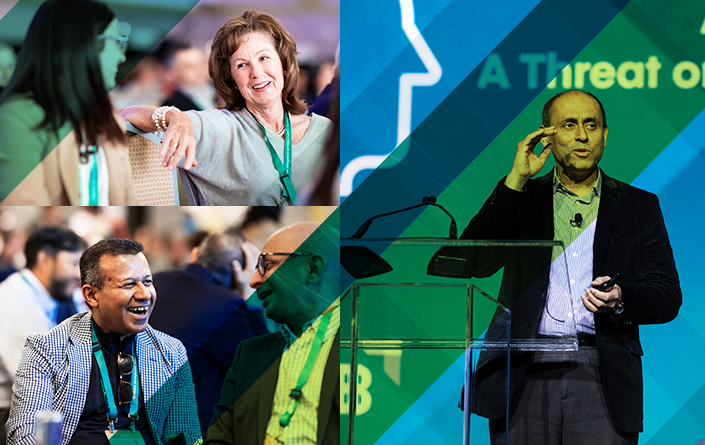Leading With Impact in the New World of Work
Transcript
Sean West: [00:13] It's an exciting time to be graduating from business school. As the world shifts around the students that are graduating, the companies that they'd all like to work for and the educators that are educating them, it's hard to keep up.
[00:25] Maintaining an open mindset is critical, but also realizing that the shifts that we're seeing, as seismic as they are, are probably the new normal from a political point of view. From the left-wing, we're seeing populism. From the right-wing, we're seeing nationalism in its nastiest forms.
[00:44] We're seeing companies be felled by social media campaigns. We're seeing a president who governs over Twitter in the United States. This isn't the normal stuff.
Pierre Tapie: [00:54] In order to become impactful business leaders, the first thing is the awareness of the state of the world. If you don't have open eyes, open ears, open heart maybe, to really discover what are the challenge of today, you will do business as usual.
[01:14] You will be a good manager. You will be someone who will a job properly, but you will not be a visionary, you will not be even if you are a small visionary. You will not bring a very distinctive brick to the history of humanity. To be an impactful leader, of course, you need competence, you need organization, you need skills, you need powerful work and so on, and so on.
[01:41] You need leadership style, of course. Leadership style is something which is key. One of the key today, in order to be an impactful leader, is to be ambitious, but to be someone who is able to listen what are the needs.
Lynda Gratton: [02:00] I'm assuming we're all going to work until we're at least 70, probably 80. That means we have to bring lifelong learning in as part of our everyday thinking about our lives. How might we do that? Part of that's going to be about being prepared to upskill. That might be something you do at work. You take time out at work.
[02:20] Also, people are going to have to re-skill, move into a different type of skill set. That means they need to take time out, maybe a day, maybe a week, maybe a month, to do that reskilling. I believe it's important for us to make big transitions. To do that, we need to take time out. We need, in other words, to take a gap year.
[02:41] It can't just be 18-year-olds who spend a year traveling around the world and learning about themselves. We should all be prepared to do that at different ages.
Geoff Perry: [02:51] If we think about the intellectual agility, leaders need to be able to frame problems, re-frame problems, to solve problems, to make mistakes, to learn from mistakes. They need to be creative and they need to be adaptive.
[03:07] They also need to have some area of expertise, [laughs] of relevance to the area they're going into. Also, an ability to work across areas where their expertise might not be so great. Leaders need to be good communicators. They need to be able to collaborate with others. They need to be empathetic. They need to be ethical. Cross-cultural awareness is critical and having agility, the ability to work in agile teams.
Howard Yu: [03:40] One thing that I find, the most successful executives are always intensely curious about the world. It's almost having the aptitude of learning how to learn, regardless of what kind of sector they're in, regardless of what kind of organization they find themselves working within.
[03:56] They are so curious about, how do other sectors, how other companies are trying to innovate in their own way, so that they are no longer only benchmarking with their peer group, but really taking out the best elements from innovators out there and selectively incorporating some of the most useful elements into the day-to-day operation.
[04:18] In that regard, because everything these days can be easily copied, it's critically important for executives to go beyond their own boundaries to really understanding, what are the seismic shifts around the world? How can they innovate? Not just by copying others, but fundamentally reinvent the way they lead their own businesses.
Filmed April 2019 at AACSB's International Conference and Annual Meeting (ICAM) in Edinburgh, Scotland.




